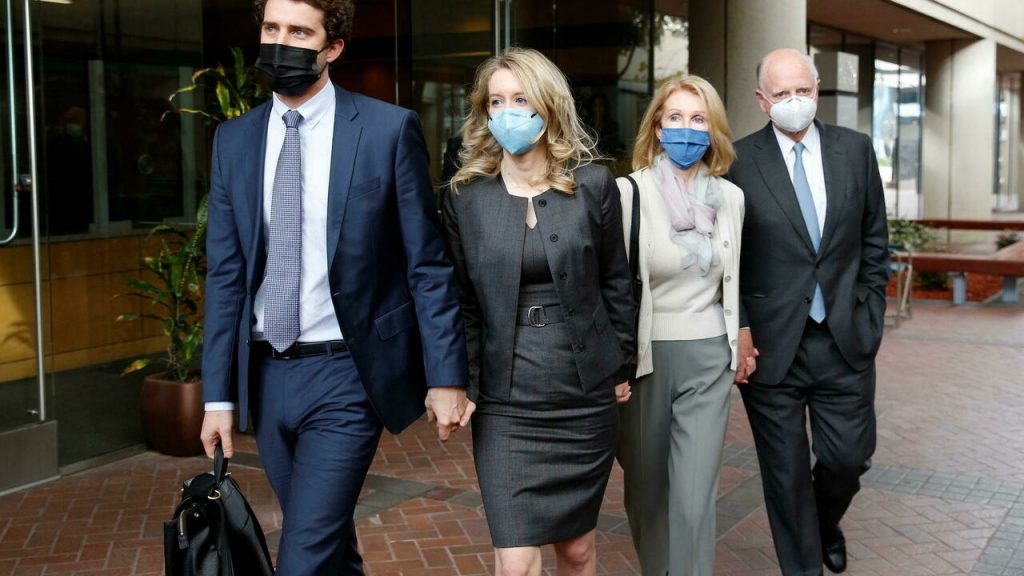Elizabeth Holmes, the one-time billionaire and Silicon Valley hero who promised a groundbreaking blood-testing device, was found guilty of four out of eleven charges in her criminal fraud trial.
After three months of hearings and testimony from 32 witnesses, the case was assigned to a jury of eight men and four women in mid-December. Over the course of seven days, the committee reached a decision after 50 hours of deliberations.
Finally, the jury found Holmes guilty of one count of conspiracy to conduct wire fraud and three counts of wire fraud against a few investors. On Monday, jurors informed Davila that they were deadlocked on three of the 11 accusations. Davila later declared a mistrial on those three counts and ordered a status hearing for Monday.

Once dubbed “the next Steve Jobs,” Holmes garnered $945 million from high-profile investors such as Betsy DeVos’ family, Rupert Murdoch, and the Walton family, who founded Walmart. At its peak, Theranos was worth $9 billion.
Holmes was eventually convicted of defrauding PFM Healthcare Master Fund of more than $38 million; Lakeshore Capital Management, a fund connected to the DeVos family, of nearly $100 million; and PFM Healthcare Master Fund, a San Francisco-based healthcare fund, of more than $38 million.
As the jury handed down its decisions, Holmes appeared stoic, showing little emotion and looking straight ahead. Holmes exited the courthouse at around 5:25 p.m. PT, without taking questions from reporters. Her attorneys also left without providing a comment.
In closing statements, jurors heard emotional pleas from both the government and Holmes’ defense. Assistant U.S. Attorney Jeffrey Schenk states, “Holmes chose fraud over business failure. She chose to be dishonest with her investors and patients. That choice was not only callous but also criminal.”

Schenk reminded the jury that even though Holmes’ staff repeatedly advised her that the technology simply did not function, she continued to raise money on fraudulent claims.
Prosecutors also attempted to persuade the jury to reject Holmes’ claims that her then-boyfriend, Ramesh “Sunny” Balwani, mistreated her. Holmes’ defense approach relied heavily on blaming Balwani. However, thousands of private texts between Holmes and Balwani call some of Holmes’ allegations into question. The messages, which date from June 2011 to July 2016, indicated romantic feelings between the two.
“You do not need to decide whether that abuse happened to reach your verdict. The case is about false statements made to investors, false statements made to patients,” Schenk said.
In his closing argument, Kevin Downey, a lawyer for Holmes, told the jury that his client acted in good faith and “believed that she built a technology that could change the world.”
According to Downey, Holmes never sold a portion of Theranos shares and “went down with the ship when it went down.”
The jury heard from 29 government witnesses during the first 11 weeks of the trial, including former Defense Secretary James Mattis, who testified that Holmes exaggerated the capabilities of the blood-testing technology, doctored reports, concealed the use of third-party devices, and staged demonstrations.

However, Holmes took the stand to explain her version of the incident. For seven days, Holmes testified that she really believed in her firm and frequently blamed her colleagues for what happened within the lab. Holmes told the jury that she had no intention of deceiving anyone, including investors and patients.
According to reports, the day before her trial, Holmes was living with her partner, William “Billy” Evans, in a property on the Green Gables Estate in Woodside, Calif. The 74-acre property, which is presently advertised for $135 million, is located in one of Silicon Valley’s wealthiest communities. Throughout the trial, she was frequently joined by Evans and her parents. Several pals from her Stanford days also appeared in court to support her.
As a result of Davila’s order, the verdict was issued on Monday. Each guilty charge carries a maximum sentence of 20 years in prison. Holmes will likely file an appeal.


